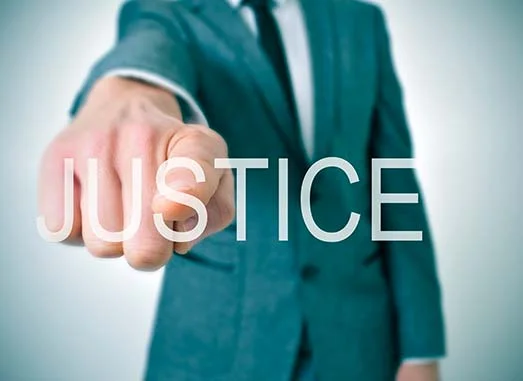


Advocacy using the judicial system to advance social change goals by bringing forward a legal case in court that focuses on improving a state of affairs for the people. Helping reform the discriminatory police practice using legal and law critical tool to defend fundamental constitutional rights and protect against systemic abuses. Taking actions of making changes for the betterment of the cause with clarity of purpose, safeguard, confidentiality, equality and diversity, empowerment and putting citizens first along with analytical and research skills, judgement, creativity, logical thinking to advocate in ethics and integrity of the values imbibed to give seamless legal services and advice on complex matters in the policy work, legislative advocacy and litigation and assist corporate and commercial matters on all stages, right from the inception of a company, to its acquisition, global expansion, merger and demerger to its meandering. The core legal advocacy practice with unique experience in banking and finance, capital markets and securities, competition laws, dispute resolution, aviation and maritime laws, general corporate commercial including advisory and transactional support, intellectual property and confidentiality including protection and enforcement of intellectual property, private equity, projects, labour and employment law, policy regulatory and taxation.Explore the efforts with self-advocacy, individual advocacy and systems advocacy with an array of programs and initiatives to improve, eliminate bias and enhance diversity and advance the rule of law and legal in being associated with the formulation of policies, development of legislation and litigation in courses of action outlined by governments, political parties, organizations and public governance which intended to shape, influence and determine decisions for actions. Thus, the enhanced policies of local and national governments and political parties set the direction and parameters for the formulation of laws, governmental programs and budgets. Litigation is the process of using the legal system to make claims and seek administrative or judicial decisions to help clarify or modify laws and practices. Beyond litigation, that fit under the legal advocacy umbrella is research and publications, writing draft policy, administrative or executive advocacy, legal aid and legal support and writing amicus briefs

Attempt to change policy is mutually exclusive the fact of effective legal advocacy strategies with reformist approach earmark the technical and regional levels of governance institutions, corporates and organizations. With this approach attempts to influence specific policies, programmes or projects. It involves targets which are more open to constructive dialogue with a high level of technical knowledge based on practical experience for the views to be taken seriously. Legal advocacy in this form is likely to take place with a co-operative environment. The process of developing a legal advocacy strategy is, therefore, a circular one involving constantly revisiting assumptions and decisions made earlier in the process.
Enhance the effectiveness of law reform participation opportunities.
Focus on strategic points of law and enhance the way laws are applied in practice
Engaging policy and law reform work to inquiries and reviews impacts
Advocating government, the judiciary and public-private sectors to improve policies and processes.
Collaborating with organisations on legal advocacy and law reform initiatives.
Legal advocacy evaluation, like traditional advocacy evaluation, is amenable to having unique focal point and approaches. As evaluators, working through four common challenges, context complexity, a long-term timeframe, shifting context and strategies and limited resources while creating new solutions to other challenges. Though there is a level of individualization in any evaluation, there is some uniformity in what outcomes make the most sense to measure concerning legal advocacy. The evaluations framework presented in assessing readiness, measuring the quality of strategies, and measuring impact.


Effective advocacy can prove to be a very powerful and empowering strategy. The onus is on our board and governance, to ensure that we make interventions as successful as possible. The stakeholder’s participation should be active participants in all stages of planning, monitoring and evaluation. A stakeholder analysis of creditors, directors, employees, government and its legal agencies, shareholders, suppliers, unions, and the community at the early stages of the legal advocacy will help to determine whose voices and opinions should guide the development of the policy objectives, milestone and indicators to secure and improved rights for people and citizens living, demonstrating the project track and making progress towards the achievement of the overall goal.
Intended research to collaborate and assist in legal advocacy, that is, efforts to assemble and use information and resources to bring about improvements in people and citizen’s lives. Collaborative endeavours fundamental to combating a social problem that stems from multiple institutional supports. It envisages the community to engage in high yielding discussions from both observant and critical perspectives on the role of law in development. Exercising one-on-one sessions to construct and analyze legal arguments, perform research efficiently, properly cite every source, and write legal missive using clear and persuasive arguments.


Practice frameworks recognize our roots and underscore the interrelatedness, access to justice, equality as the legal foundation of a legislative society. Strive to advance new frontiers to ensure that these rights are legally enforced. Empowering requires strength, coherence, and continued relevance and the accountability and achieve remedies support at national, regional, and international levels to build a body of progressive jurisprudence. Service models focus on structural and transformative change by demonstrating the justiciability, thus, establishing broad public-interest and systemic remedies, expanding the scope of policy rights protections and mechanisms, and furthering the accountability-based approach.
Legal empowerment is crucial to explore the legal context around strengthen legal advocacy that favour and obstruct key strategies and judicial delivery to engage in legal work. improve the functioning of justice systems, strengthen citizens capacity to press for justice. Promotes greater independence, accountability and transparency in judicial systems, assists in delineation and implementing codes of judicial ethics, encourage judicial education and training and helps to strengthen court administration and efficiency for a well-functioning judiciary that is a central pillar of the rule of law.


Governing scope to select contractors for the provision of services, for procurement, construction and installation for tender packages. Implementing the domestic legislation of issued general rules, directives prepared to incorporate the provisions at the governance level limiting the participation of authentic and authorized suppliers and service providers on national, state and local tenders. An international agreement is governed by legislative laws based on constitutional principles, making it mandatory that government procurement follow the rules enacted in regards to all legalities. Compliance with WTO guidelines based on the principles of openness, transparency, and nondiscrimination, which apply to the parties’ procurements that are covered by the tender agreement to the benefit of parties and their suppliers, goods, and services in tendering and contract regulations
The communication process between the members and stakeholders will form a foundation for a successful engagement. To define the major elements of the legal advocacy involved will be on the same page and surface early if there is any disconnect or disagreement and provide sufficient detail about the parameters of the legal aid parameters that can be prepare provide to the members and stakeholder with adequate information for a legal department to review. With capturing a clear statement of scope, gathering information regarding key stakeholders and developing a comprehensive statement of work information is used as the foundation.


With a deep understanding of the public and private sectors, engaging to provide strategic and focused advice with intelligent solutions to complex legal matters. Grasp the complexities and subtle nuances of public and political law and are adept at obtaining judicial review, administrative and legislative resolutions, and alternative solutions. An appropriate legal framework is decisive for the effective functioning of administrative bodies. Effective counsel on dealing with the public sector, government, political and legislative processes, approvals and initiatives, procurement issues, and public policy and legal reform.
Legal collaboration is more of a mindset than a tool. Collaborative work bridging gaps and creating sustained investment for social change. Co-create, incubate, and manage collaborative efforts that have staying power and far-reaching influence. Co-collaborator and a neutral platform play a unique role in convening, directing, and managing coalitions and collective efforts. Collaboratives coalitions and partnerships to take their work to the next level. Early engagement, leadership and sustained core stakeholders from a handful of committed leaders is often key to success. A coalition approach can help to coordinate multiple interests and perspectives, strengthen strategies and ensure groups are speaking with one voice.


Encompasses a wide range of activities influence decision-makers, includes traditional activities such as litigation and public education, capacity building, relationship building, forming networks, and leadership development. Drive activities that are intended to influence a specific piece of legislation enhancement. Advise multinational businesses on national, state and local government issues, advance legislative and regulatory strategies that change the landscapes of major industries and help governments initiate innovative plans to better serve their constituents. Succour to navigate the challenges posed by the interplay of laws, public policy, regulation, competition, and economic trends across the fields regulated by the government, state and local governance and jurisdictions.
A brand conveys quality, consistency, reliability, aspirations, identification with a lifestyle and values along with a great name, taglines, signage, packaging, and design of websites and storefronts to build a brand. Yet all of that investment is often for nought if designers, developers, and the other architects of a brand fail to work hand-in-hand with experienced intellectual property attorneys. Legal advocacy and advice during brand development can be inexpensive compared to retaining an attorney handle legal issues that businesses consider when developing or building a brand like a trademark, copyright, patent, advertisement, promotion and social presence and more. With each of own merit’s, organizations use legal and advocacy to advance goals to raise awareness, create change and build the movement. rally support through grassroots advocacy, which involves supporters acting on their own with guidance from nonprofit. This way, nonprofit branding and positioning can raise awareness and organically gain support. It is important to draw the line between which acts fall under the legality and advocacy umbrella and which acts do not as part of that delineation concerning the paired with activism.


The shaping of sound social policies and legalities has long been a predominant purview for the social work profession and legal advocacy. Nonprofit organizations play a vital role in the development and implementation of public policy to promote an informed, healthy, and strong democratic society and respond to the impact of public policies on the citizens. As maven, be the part and bridge between policymakers and the constituents with effective advocacy that builds capacity to achieve to serve people and communities. Engaging in social policy advocacy also raise awareness of governance and the organization’s mission, mobilize the constituents and attract positive social attention. Key initiatives were the creation of the coalition for policy education and practice in social work, which is brought together social work education, research, policy and practice organizations to build interest in policy practice and prepare social workers to engage in policy practice regardless of the field of practice; and coordinate and connect existing efforts underway.